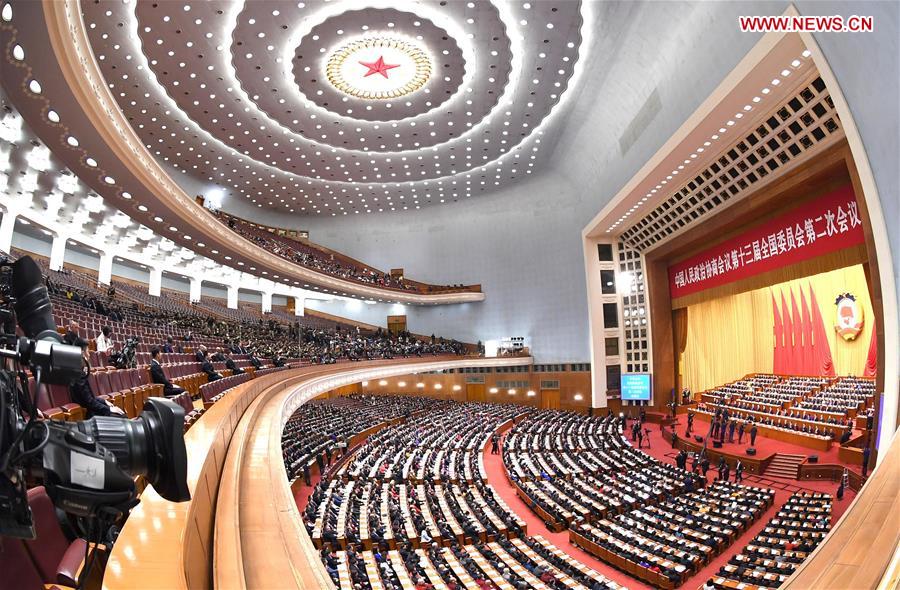China's top political advisory body concludes annual session


BEIJING -- China's top political advisory body concluded its annual session Wednesday, building a broad consensus and unity for national development.
Xi Jinping and other Chinese leaders including Li Keqiang, Li Zhanshu, Wang Huning, Zhao Leji, Han Zheng and Wang Qishan attended the closing meeting of the second session of the 13th National Committee of the Chinese People's Political Consultative Conference (CPPCC) in Beijing.
Addressing the closing meeting, Wang Yang, chairman of the CPPCC National Committee, called for further improvement of the CPPCC system to translate the Party's propositions into consensus and action of people from various sectors.
Wang stressed the need to uphold and strengthen unity, urging the CPPCC to carry out its dual responsibility of offering suggestions and building consensus, and pool joint efforts to serve the central tasks of the Party and the state.
Focusing on key issues including securing a victory in building a moderately prosperous society in all respects, political advisors have been engaged in in-depth consultations and actively offered proposals during the session, achieving important results, he noted.
This year marks the 70th anniversary of the founding of the People's Republic of China as well as the CPPCC.
Hailing CPPCC's achievements in participating in the founding and developing of New China, exploring reforms, and realizing Chinese Dream, Wang said the political advisory body now enjoys a broader stage and shoulder a heavier responsibility as socialism with Chinese characteristics has entered a new era.
The CPPCC is an important organ for CPC-led multiparty cooperation and political consultation. It is a major channel for socialist consultative democracy and a specialist consultative body.
As of 5 pm on March 7, political advisors had submitted 5,113 proposals since the session started on March 3, ranging from the "three critical battles" against major risks, poverty, and pollution, to developing socialist democracy.
A resolution on a work report of the Standing Committee of the CPPCC National Committee, a report on the examination of proposals, and a political resolution on the annual session were approved at the closing meeting.
China will inevitably face an array of interwoven opportunities and challenges in 2019, the political resolution reads.
It calls on political advisors to follow the guidance of Xi Jinping Thought on Socialism with Chinese Characteristics for a New Era, and work to maintain stable growth, advance reform, make structural adjustments, improve living standards, guard against risks, and ensure stability.
The CPPCC should improve its quality in carrying out its dual responsibility of offering suggestions and building consensus, and shoulder its political responsibilities of implementing the CPC Central Committee's decisions and plans, of meeting its requirements for CPPCC work, and of pooling the wisdom and strength of all Chinese people, at home and overseas, for national rejuvenation, it says.
- Rural China tackles hefty bride prices to ease marriage burdens
- Market fire causes multiple casualties in North China's Hebei
- 'Ferryman of souls' escorts cremains of veterans from Taiwan to mainland home
- China announces month-long online shopping event for Spring Festival
- Hong Kong-Zhuhai-Macao Bridge reports record high passenger flows in 2024
- China launches action plan to tackle dementia amid aging population challenge







































